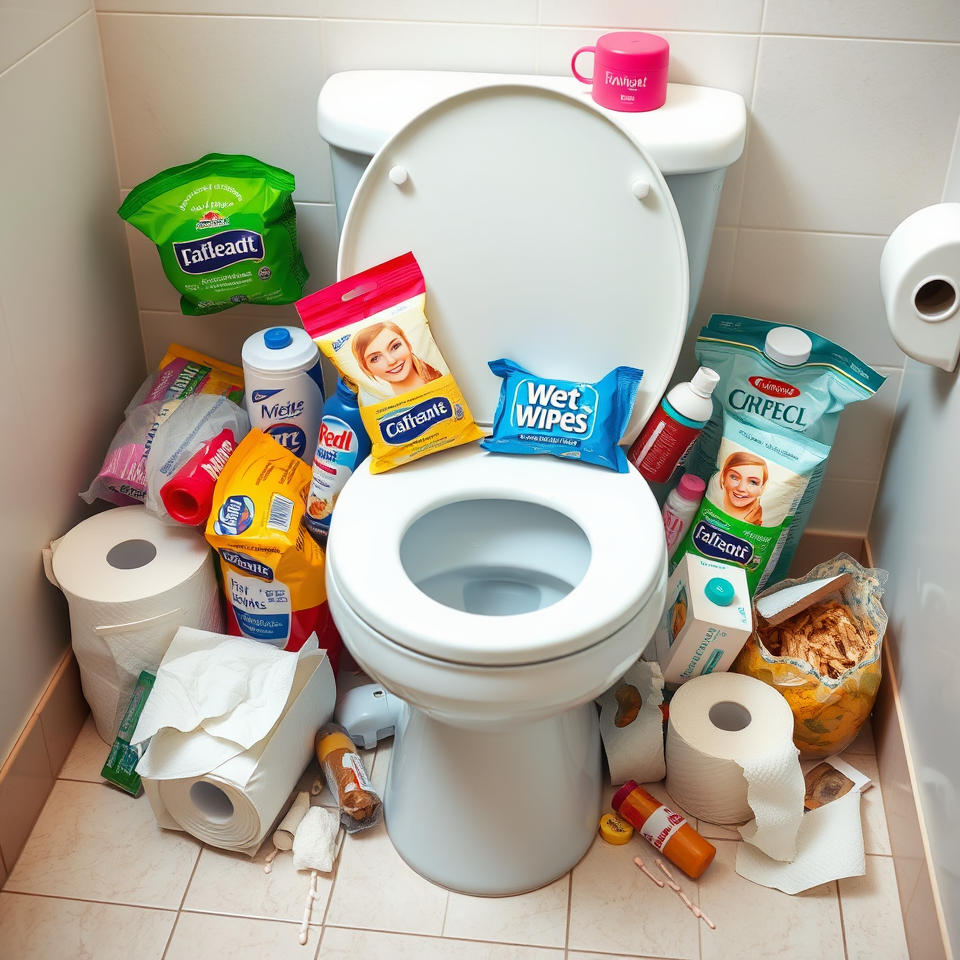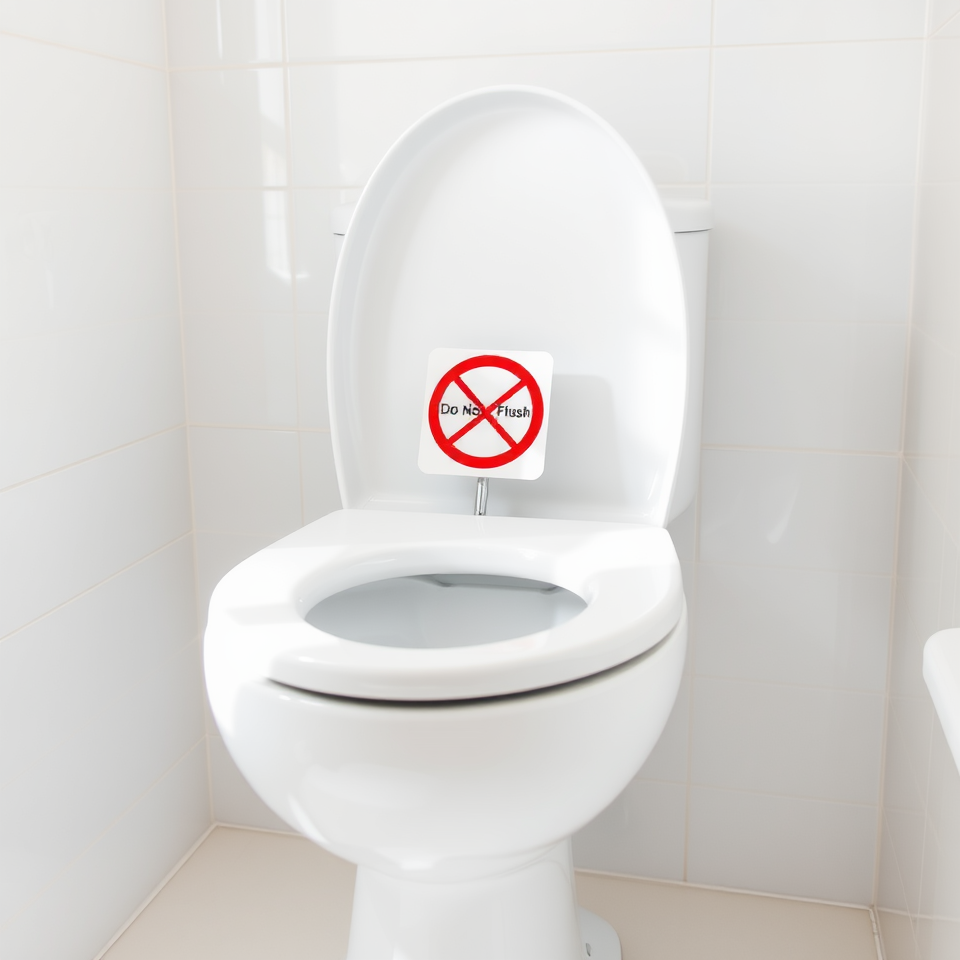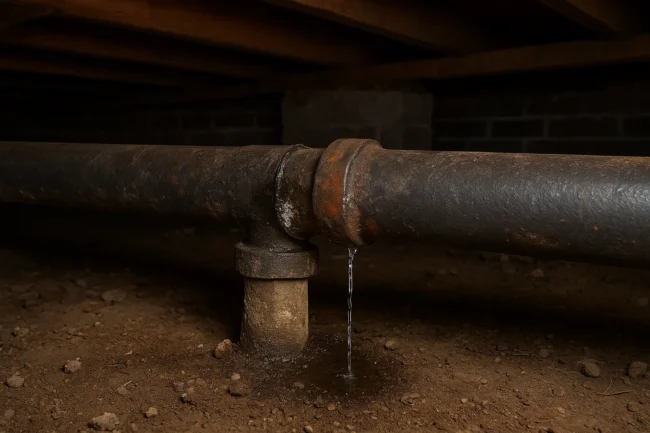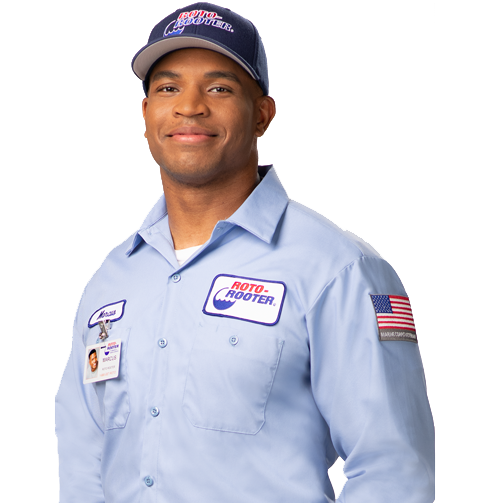Understanding Your Toilet’s Purpose
The professionals at Roto-Rooter Delmarva have seen just about everything you can imagine clogging up a toilet. Trust me, it’s not pretty. Most folks don’t realize that flushing the wrong stuff can lead to some serious plumbing disasters. Not only does it wreck your pipes, but it can also mess with the environment and cost you a ton in repairs. So today, I’m sharing what every homeowner in Delmarva needs to know: the top five things that should never, ever go down your toilet – no matter how tempting or convenient it might seem.
Designed for the Bare Essentials
Most of us don’t think twice after we flush. But behind the scenes, your waste goes on a journey through your home’s plumbing, the city’s sewer system, and finally to a treatment plant. Along the way, anything that’s not biodegradable or water-soluble can cause major blockages.
The Hidden Path: From Flush to Treatment Plant
Most of us don’t think twice after we flush. But behind the scenes, your waste goes on a journey through your home’s plumbing, the city’s sewer system, and finally to a treatment plant. Along the way, anything that’s not biodegradable or water-soluble can cause major blockages.


Top 5 Things You Should Never Flush
1. “Flushable” Wipes
Let’s start with the biggest offender: those so-called “flushable” wipes. Despite what the
packaging says, these things do not break down like toilet paper. Instead, they clump together and form massive clogs in your pipes – and in municipal sewer systems too.
Here in Delmarva, I’ve cleared dozens of backups caused by wipes. Save yourself the
headache and toss them in the trash.
2. Feminine Hygiene Products
Tampons, pads, and liners might seem small and harmless, but they’re designed to absorb and expand – not disintegrate. Once flushed, they swell and get stuck in bends and joints of your plumbing. Use a covered trash bin in your bathroom instead. It’s discreet, hygienic, and much kinder to your pipes.
3. Dental Floss
It’s thin and wiry, but dental floss is surprisingly strong. Once in your pipes, it wraps around other debris and creates tough knots that are tricky to remove. In septic systems, floss doesn’t break down and can clog pumps or damage machinery. Dispose of used floss in the trash to avoid sneaky backups.
4. Cat Litter (Even the “Flushable” Kind)
Cat litter – especially clay-based – is a major no-go. It clumps when wet, which is exactly what it does in your toilet and pipes. Even the so-called flushable types aren’t safe. Plus, litter can contain harmful bacteria like Toxoplasma gondii that shouldn’t be introduced into the water system. Scoop it and bag it – your toilet will thank you.
5. Old Medications
Flushing old pills or liquid medicine might seem like a good way to dispose of them, but they
end up in our water supply. Wastewater treatment plants aren’t equipped to filter out all the
chemicals in pharmaceuticals. Instead, check for local drug take-back programs (you can find them through the FDA or DEA websites). Here’s a reliable source from the U.S. FDA
What Else Shouldn’t Go Down the Toilet?
Hair and Nail Clippings
These can clump together and create mini-networks that trap other debris. Toss them in the
trash instead.
Grease and Oil
Grease solidifies when it cools, forming thick, nasty blockages. Always dispose of grease in a
container and throw it away after it hardens.
Paper Towels and Tissues
Unlike toilet paper, these are built to hold up when wet. They don’t dissolve properly and are
common culprits in slow drains and backups.
The Cost of Ignorance
Real-Life Plumbing Disasters I’ve Seen:
I once responded to a call where a family had flushed wipes, cat litter, and grease for months.
Their main sewer line was so blocked that raw sewage backed up into the basement. Cleanupand repair cost over $8,000. Don’t be that house.


How to Build Better Flushing Habits
The Dollars and Stress It Can Cost You. Simple habits like watching what you flush can save you hundreds or even thousands in plumbing repairs. Plus, it prevents stress and protects your home’s resale value.
A Bathroom Trash Can is Your Best Friend
It’s a small, simple change that makes a huge difference. Keep a lined bin with a lid in every
bathroom.
Teaching Kids and Guests the Dos and Don’ts
Make a “Do Not Flush” list and post it near the toilet. It’s especially helpful if you have visitors or
young children.
Environmental Impact
Damage to Local Wastewater Treatment Systems
Flushed wipes and hygiene products jam up machinery and slow down treatment processes. It’s a burden on public infrastructure and your wallet through taxes and utility costs.
Long-Term Effects on Delmarva’s Waterways
Contaminants and blockages affect water quality in the Chesapeake Bay and other local waters. By making smart flushing choices, you help keep Delmarva clean and safe for future
generations.
Emergency Signs and When to Call a Pro
How to Spot Early Signs of Trouble
● Gurgling noises
● Slow draining
● Water backing up in other fixtures
● Frequent need to plunge
Don’t wait until it’s a full-blown disaster.


Services Roto-Rooter Delmarva Offers
We’re here 24/7. Whether you need a quick drain cleaning, a sewer line inspection, or full
plumbing service, we’ve got your back. Check out our Plumbing Services and Sewer Line Video
Inspection for more info.
In Conclusion, changing your toilet habits doesn’t take much – but it can save you a ton of trouble. Just
remember the golden rule: if it’s not pee, poo, or toilet paper – it doesn’t belong in the loo.
As your local expert here at Roto-Rooter Delmarva, I’m always happy to help keep your home
running smooth and safe. Let’s protect your pipes and the planet, one smart flush at a time.
Frequently Asked Questions
Can I flush flushable baby wipes?
Despite the name, they don’t break down easily. Toss them in the trash instead.
Is toilet paper really the only safe thing to flush?
Yes, besides waste. Stick to the basics to avoid clogs and backups.
Are there eco-friendly products safe for toilets?
Yes, look for biodegradable toilet paper and avoid synthetic materials like wipes and liners.
What should I do if I accidentally flush something bad?
If it’s small, monitor your toilet. If issues arise, call us for a video inspection.
How often should I get a sewer line inspection?
Every 1–2 years is a smart move, especially if you have an older home or large family.
Schedule yours with Roto-Rooter Delmarva today!

